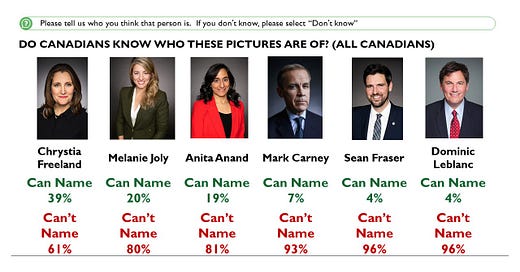Liberal Leadership: Would You Order a Dish You Know Nothing About Off a Menu?
Some thoughts on polling the potential impact of the Liberal leadership candidates
Why We Can’t Easily Estimate Liberal Leadership Candidates’ Broader Appeal (Yet)
Yesterday, Justin Trudeau resigned and initiated a process to select a new Liberal Party leader and prime minister. That decision was inevitable, especially following Chrystia Freeland’s resignation (link)
Speculation and feelers about the next leader and what Canadians think…




